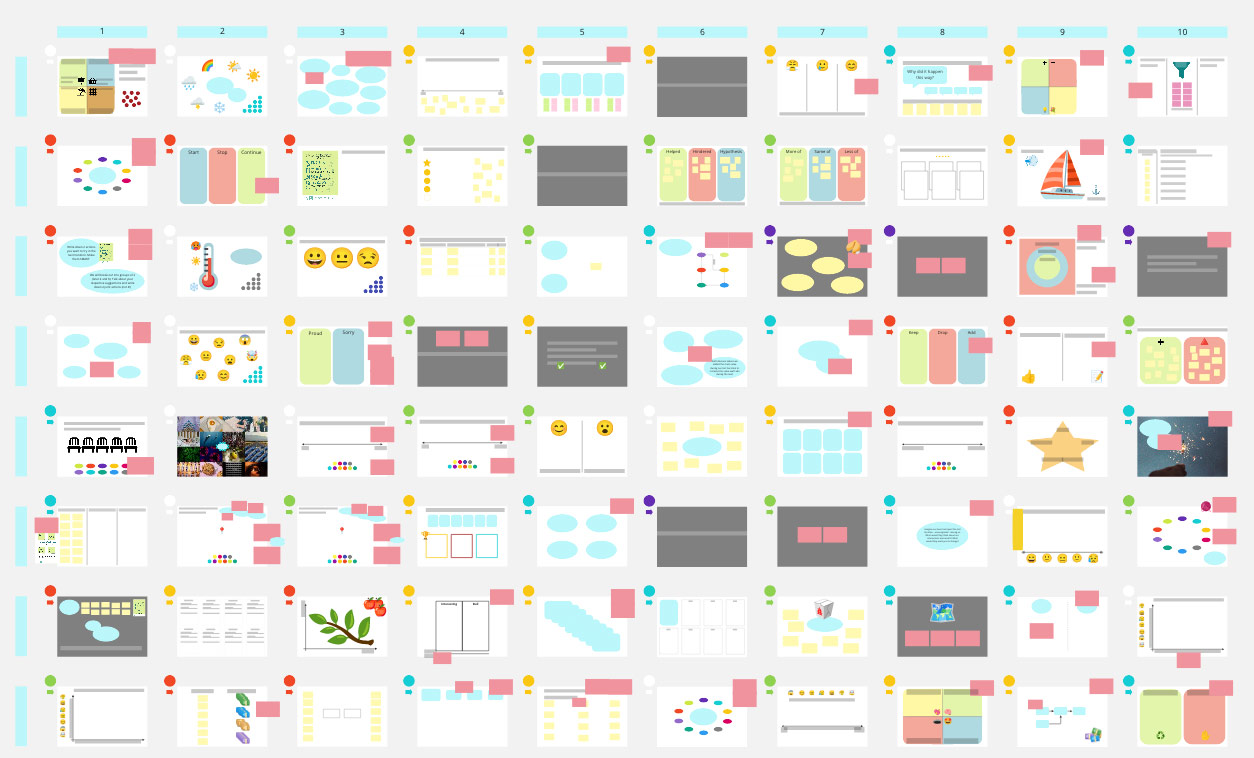Planning Poker Voting
(#99)
Use your Planning Poker cards for un-influenced voting
Source:
Andreas Ratsch
If you've got very influential and / or shy team members you can re-use Planning Poker cards to vote simultaneously:
Write all suggested actions on sticky notes and put them onto a wall. Hand out an ordered deck of Planning Poker cards to each participant. Count the proposals and remove that many cards from the back of the card decks. If you've got 5 suggestions you might have cards '1', '2', '3', '5', and '8'. This depends on your deck (some have a '1/2' card). It doesn't matter, as long as all participants have the same set of values.
Explain the rules: Choose a card for each suggestion. Choose a low value if the action is not worth doing in your opinion. Choose a high value if the action is worth starting next iteration.
Give them a minute to sort out their internal ranking and then present the first suggested action. Everybody chooses a card and they reveal them at the same time. Add the numbers from all cards and write the sum onto the action. Remove the used poker cards. Repeat this for all actions. If you have more actions than poker values the players can show 'no card' (counting 0) for the appropriate number of times.
Implement the action with the highest sum in the next iteration. Add more actions only if there's team consensus to do so.



